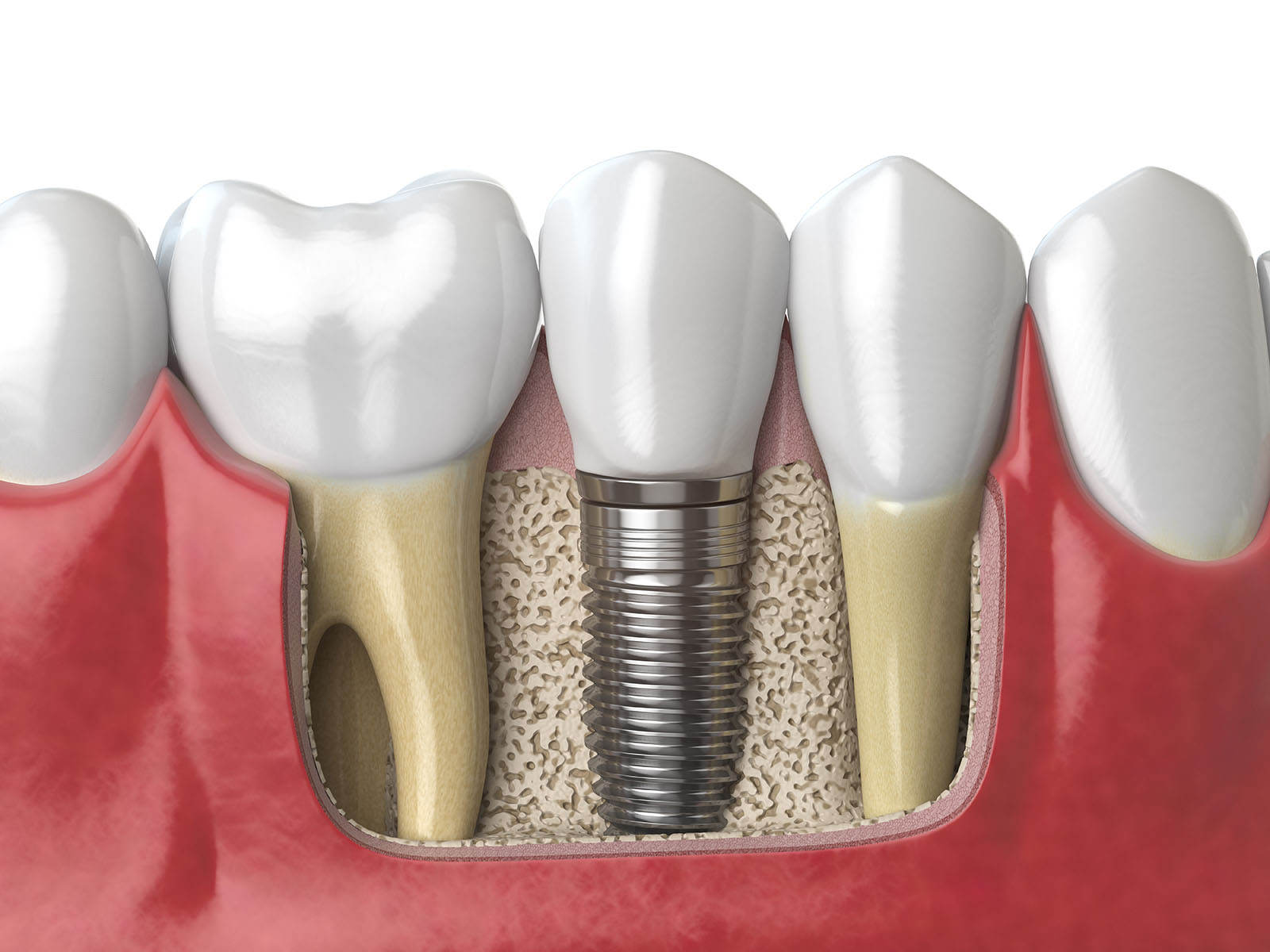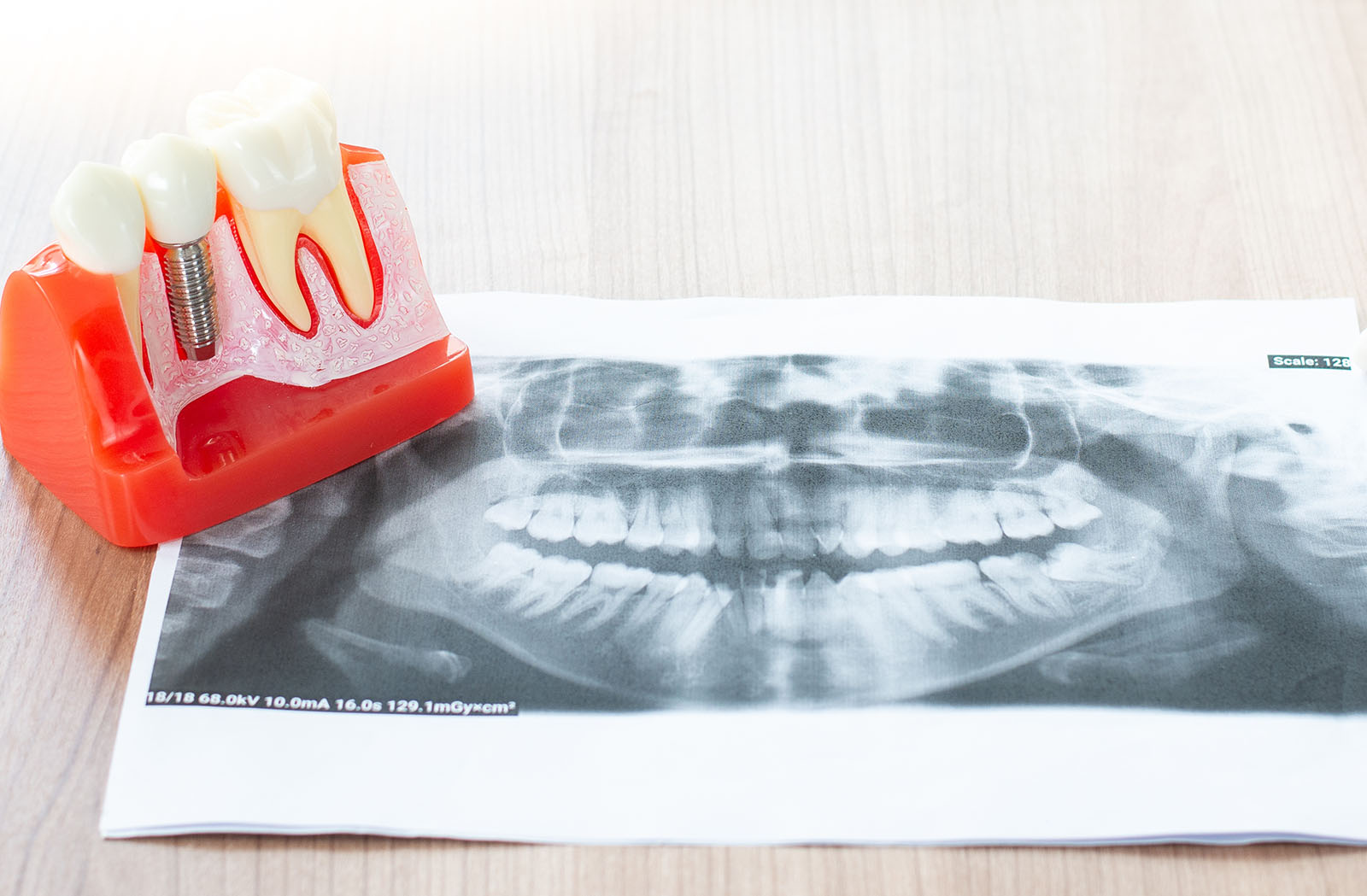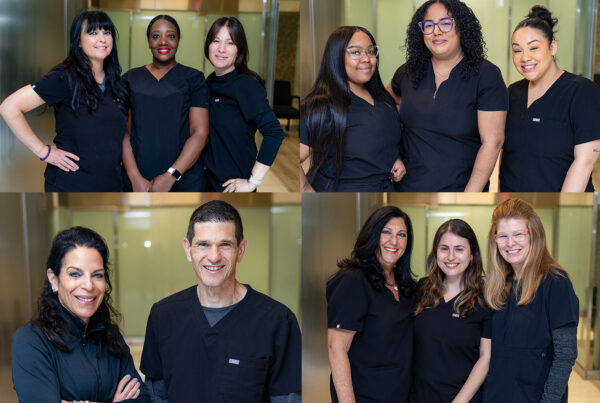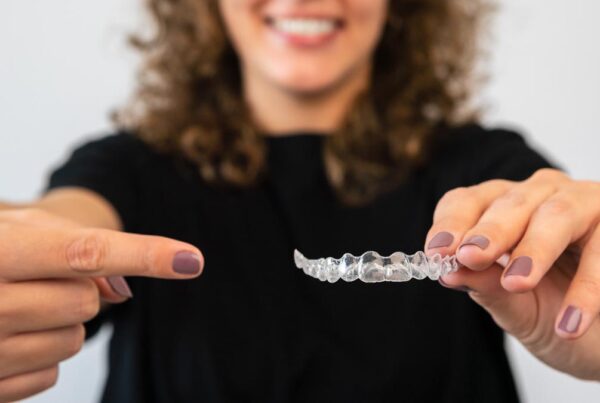More than 8 million Americans have chosen dental implants for a more permanent solution for their smiles.
Many dentists believe dental implants are the next best solution after natural teeth. The entire process to receive dental implants happens over several months, but once you have them placed it will be well worth it!
Making the decision to get dental implants is a big choice to make, and at Dentistry at 1818 Market Street, our dental office in Center City Philadelphia, we completely understand. Our dentists are highly experienced in dental implant procedures.
While dental implant surgery may be intimidating to some, it is absolutely worthwhile.
A large part of getting dental implants is the recovery process. In this blog, we will be going over what you can expect for recovery after you get your dental implants at Dentistry at 1818 Market Street , a top-rated dentist office in Center City, Philadelphia.

Recovery Time
Recovery time from dental implant surgery is usually not all that long, compared to the longevity of the implants and impact it will have on your life, making this a worthwhile investment. Recovery time will differ depending upon the individual and the particular surgery in terms of complications or amount of implants, but it generally takes a week to see a considerable amount of improvement in symptoms.
Recovery time is typically shorter than most people think. Usually most major symptoms of surgery clear up within the first week, but sometimes recovery can take longer, depending upon how many teeth you had implanted.
Gauze packs will be placed over the surgical area immediately after the procedure. You should bite down on the gauze pack gently but firmly for about one hour to prevent bleeding. You can change the gauze after every 30 to 45 minutes until active bleeding stops.
Generally, once you leave the dentist, you may experience mild bleeding from around the implant site; this is completely normal and should clear up within a few hours after surgery completion. You may also experience pain associated with swelling and drainage, which should clear up after 2-3 days.
Once you have reached the third day, most of the bruising should have dissipated and the pain should subside substantially. You may also experience stiff jaw muscles, sore tongue and throat, and a dryness that will all largely subside within day 7.
If you received just one dental implant, your total recovery time could be shorter. If you had several or all teeth replaced with implants, then your recovery time could be longer.
While it usually takes 5-7 days for all the symptoms to diminish after dental implant surgery, the recovery time varies from patient to patient due to factors like:
- The number of implants you’ve had
- Whether your procedure requires bone grafting
- Whether your jawbone is healthy enough to accommodate implants

Bone Grafts
Another factor to consider when thinking about dental implants is if there is a need for bone grafting. If your dentist determines that your jaw isn’t strong enough to support dental implants, you may need a bone graft. This is another factor to consider when it comes to estimating your recovery time. If you do need a bone graft, your recovery time will be longer.
Bone grafts are needed if your jaw bone is not strong or thick enough to support the stress that an implant carries. If you lack proper bone thickness and/or strength, then you may need a bone graft. This will extend recovery by a minimum of a few weeks, with most discomfort subsiding within the next month or two. This also largely depends on how much bone grafting is needed, as a small amount of bone grafting would not extend recovery time like a larger amount would.
The way that implants work is that the surgeon attaches them directly into your jawbone with something that resembles a screw. Think of this screw, also known as a post, as your new root. And once your gums are healed enough, the surgeon places the artificial tooth on the post.
If your dentist determines that your jaw isn’t strong enough, you may need a bone graft. This is also another factor to consider when it comes to estimating your recovery time. If you do need a bone graft, your recovery time will be longer.

Dental Implant Recovery Diet
After your dental implant surgery you will have to avoid certain food and drinks so your implant has time to heal. It’s important to avoid direct contact with your implant for as long as possible. That means you should avoid hard foods until the area is completely healed. Focus on eating soft foods and try to chew on the healthy side of your mouth.
Good foods after surgery include:
- Baked beans
- Bananas
- Avocado
- Fish
- Eggs
- Oatmeal
- Healthy Juice
- Smoothies
- Protein shakes
- Ice cream
- Mashed potatoes
- Soup
It is also best to avoid eating anything hard to avoid the risk of causing any damage.
Hard foods like nuts, apples, and chips should be avoided. Acidic foods like lemons, tomatoes, and lime are also not suitable for you. Acidic food and drinks can irritate the tissue around your implant and cause you additional pain and inflammation.
You should eat soft foods for at least one week after your procedure and perhaps even longer depending on the instructions from your surgeon.
Incorporating A Good Oral Hygiene Routine
If you brush twice a day and floss once a day already, then this will be no problem for you. You should continue your oral hygiene routine, but if you find it hard or painful to open your mouth right after your procedure, your surgeon will recommend rinsing your mouth with salt water or an antiseptic mouthwash to help prevent any infection.
When you are able to brush your teeth and floss, you should continue to do so, but make sure to be gentle during the recovery process. Using a toothbrush with soft bristles is important, so you don’t cause further irritation.
Dental Implants are a common and popular procedure. Most dental patients who get implants say they wish they wouldn’t have waited so long and would have gotten them sooner. Dental implants can change your life for the better in many ways. Contact Dentistry at 1818 Market Street to schedule your consultation to see if dental implants are right for you.




